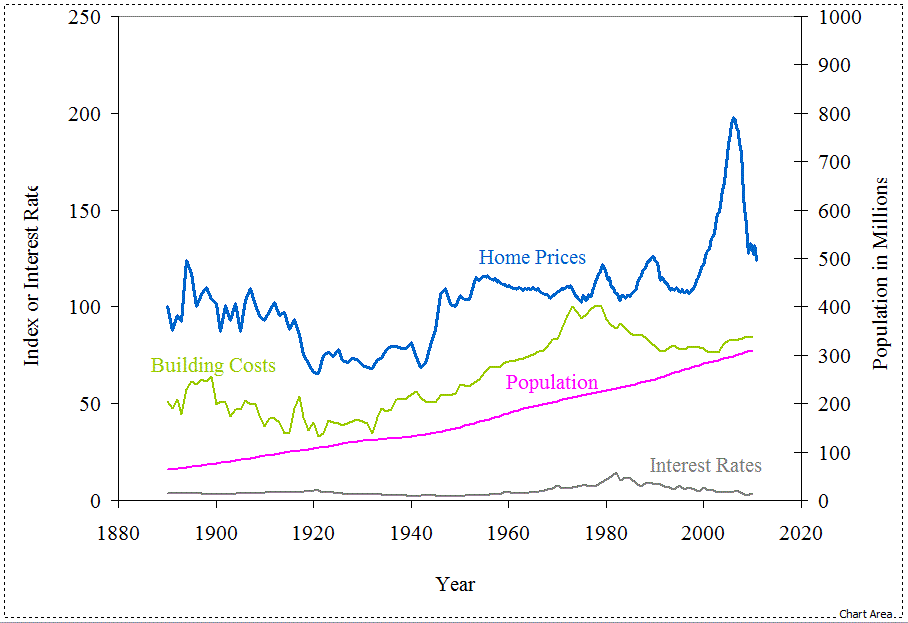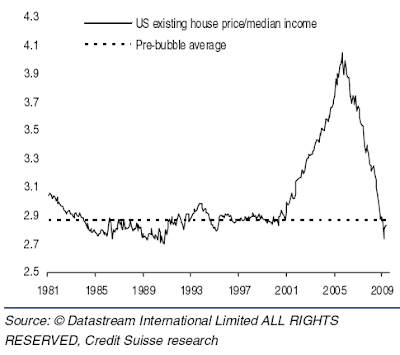...use Case-Shiller data you get a much longer timeline it shows the 1920s bubble being nearly as bad....
......
Looking to the future we can believe an additional 20% plunge to the floor we've had for half a century, or maybe a 50% drop down to the levels we had in the 20's and 30's.
Bleak.

I wonder if that's why it was called "The Great Depression."
The recent punge in home values cannot be compared with anything in the history of the US, even the Great Depression: Lord knows where the ramifications will lead, however here are my predictions:
Middle Class
Category A: The generation that bought first homes 2000-2008 will be immobile.
Category B: The generations that could buy homes after 2008 will instead rent (probably from the first category).





